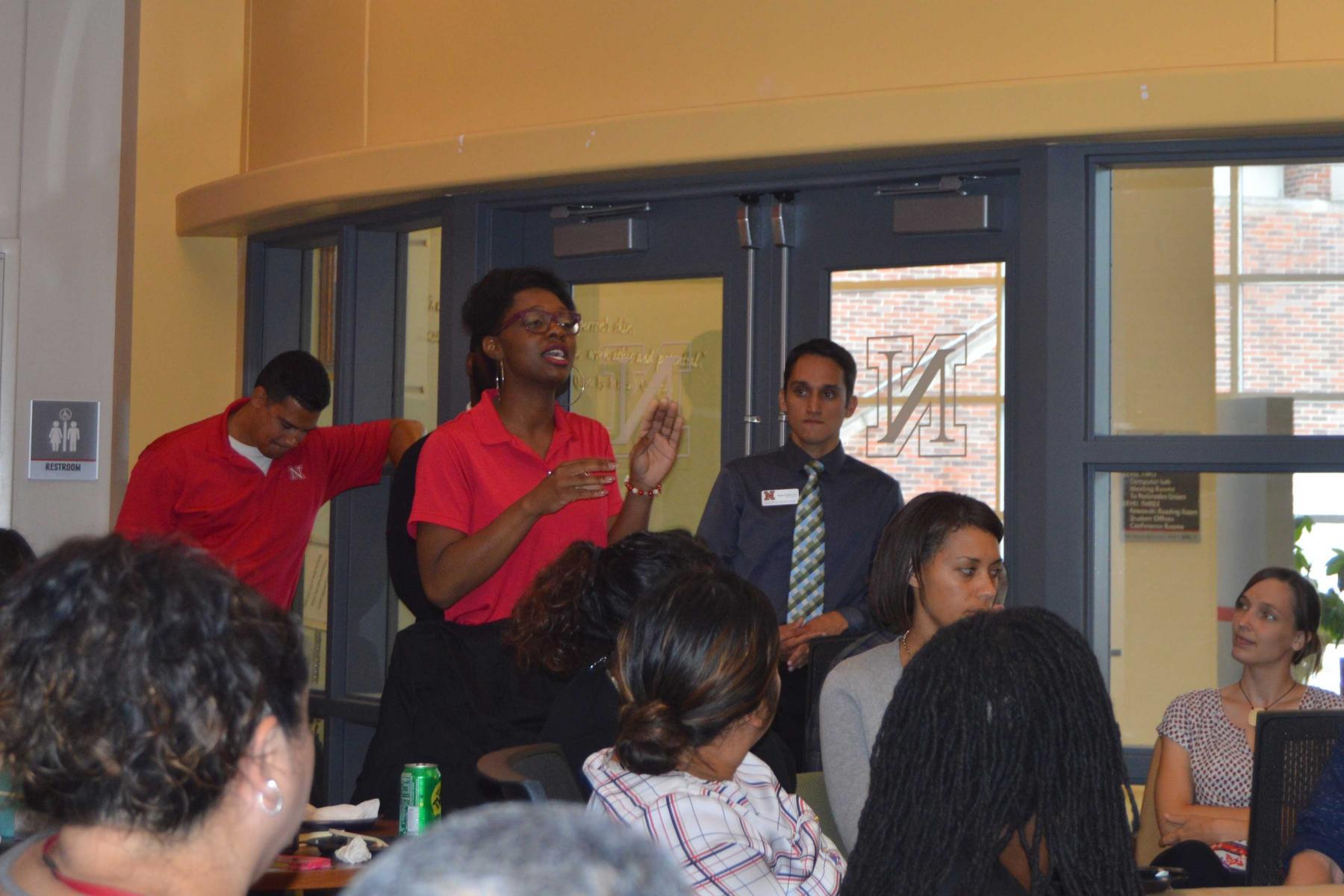Monday, July 18, 2016 UNL Community Dishes on Building Community & Creating Action

Approximately 50 students, staff and faculty gathered Friday, July 15 at noon to discuss the epidemic of recent tragedies across the country. Kevin Reese, program coordinator in the Office for Academic Success and Intercultural Services, began the event by promoting open conversation without arguments, respectful conversation and engaging with one another. An officer with the Lincoln Police Department was also present.
“There’s lots of tension, emotion and feelings and we need to talk about it,” said Belinda Hinojos, a counselor in Counseling and Psychological Services (CAPS) who helped facilitate the dialogue.
Over the course of the hour, participants shared feelings ranging from sadness and frustration to angst, fear and hope. Many participants questioned where the country is headed if more open conversations and increased training about identity, privilege and diversity do not take place.
Individuals shared personal experiences of being stereotyped and how that affected encounters with police in Lincoln and nationwide. A couple of black males expressed a fear of making one misunderstood move during a traffic stop and whether that could cost them their life.
The representative from the Lincoln Police Department apologized to the crowd for the growing fear. She continued to share feelings of helplessness and disappointment in having thought that nationally we were coming so far and how frustrating it is that one person can ruin it. She reiterated that most police officers are not motivated by racism or ill will. In contrast, the officer said that she puts on the uniform because she wants to do good.
One student shared feelings of being caught in the middle between friends of color and white friends as each group retreated rather than working to understand one another. Another individual questioned why we solely focus on race and are not talking about this as a masculinity and socioeconomic status issue, which he suggested were underlying issues being overlooked.
The conversation was gaining momentum as the hour mark approached. Participants emphasized that the conversation needs to continue beyond this single event and into daily personal interactions. Facilitators encouraged the campus community to return to the Jackie Gaughan Multicultural Center to engage in sensitive conversations and learn more about one another so we can educate others.